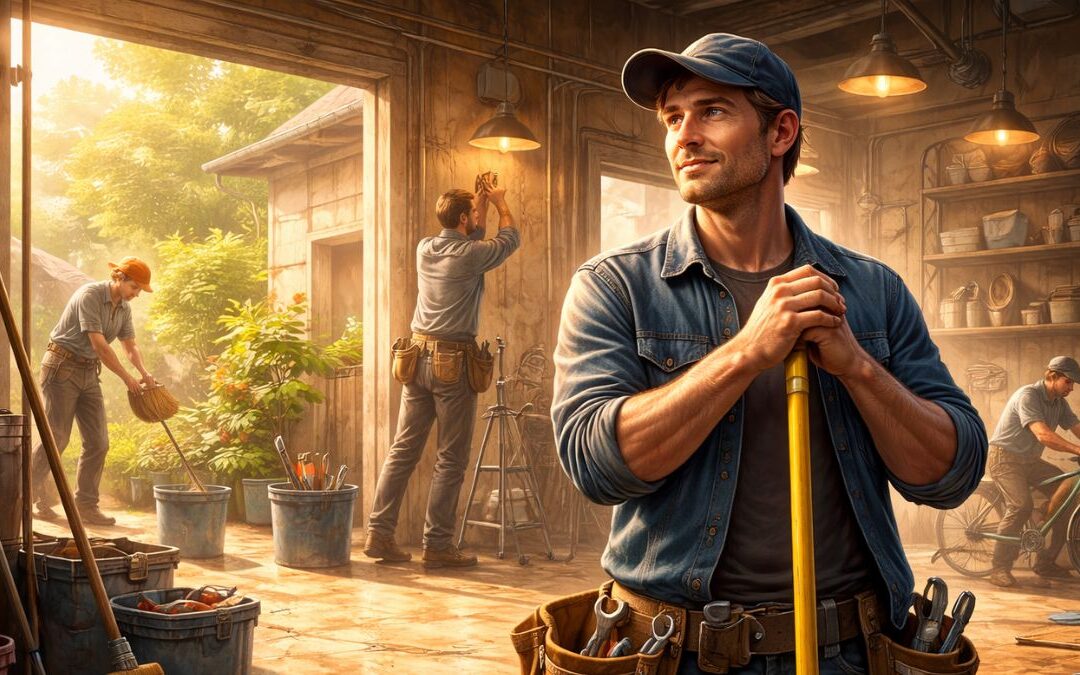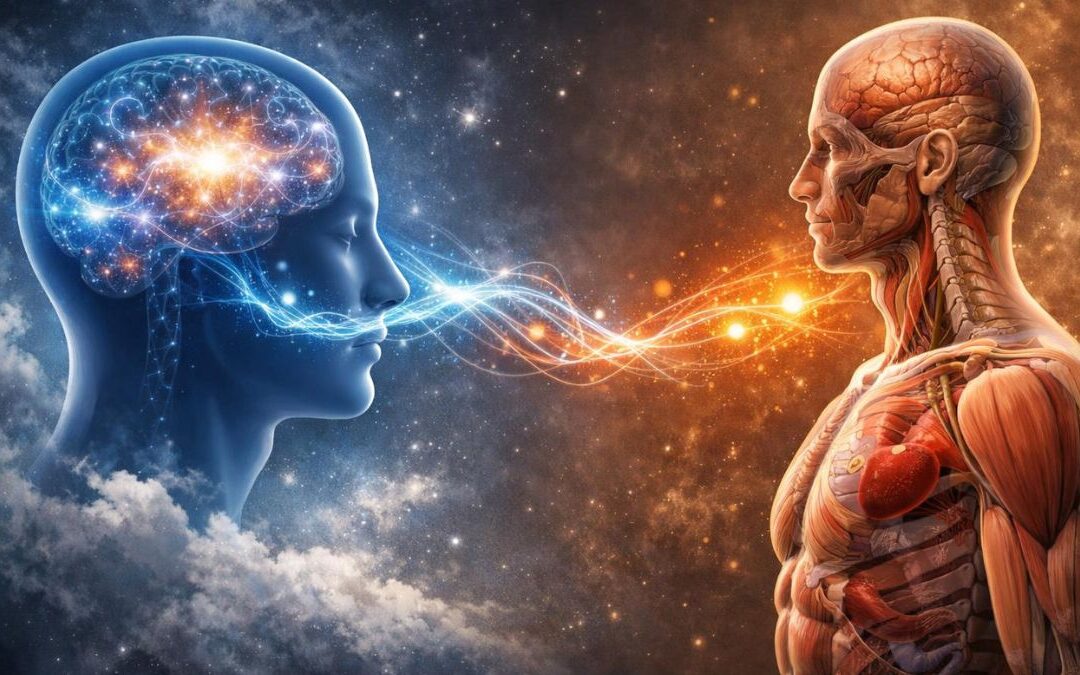When Was the Last Time You Didn’t Have an Answer?
When was the last time you were in a conversation, maybe about politics, or art, or the proper way to raise a child, and you let yourself say the three simplest, most honest words in the world: “I don’t know”? If you can’t remember, you’re not alone. We live in an age that has an allergy to uncertainty. We are professional knowers, amateur experts, curators of finely honed opinions on everything. We are armed with hot takes and bullet points, ready for a debate to break out at any moment. But what if the most powerful, most creative, and most liberating thing we could do is to put down our weapons of certainty and embrace the quiet, spacious freedom of intellectual humility?
The Heavy Crown of the Modern Expert
Let’s be honest, the pressure is immense. The world feels like a vast, open-book test that nobody told us how to study for, and we’re all terrified of being caught without the right answer. Saying “I don’t know” can feel like a confession of failure. It can feel like you’re falling behind in a race you didn’t even know you were running. We see the pundits on TV, the influencers online, the smartest person in the office meeting—they all speak with a seamless, polished certainty. They have an answer for everything. And we think, that is the goal. To be the person who knows. But have you ever stopped to consider the sheer weight of that? The exhausting, soul-crushing burden of pretending to have a complete map to a world that is, by its very nature, a wild, uncharted territory?
The Child Who Knew How to Play
I want you to think back for a moment. Picture yourself as a child, maybe five or six years old. Your entire world was a giant, shimmering question mark. The sky, the bugs, the way water disappears from the sidewalk after it rains—it was all a mystery. Your native language was “Why?” And “I don’t know” wasn’t a failure; it was the default setting. And what did you do with all that not-knowing? You filled it with imagination. A cardboard box wasn’t just a cardboard box, because you didn’t know that’s all it was supposed to be. So it became a spaceship, a castle, a time machine. A stick wasn’t just a piece of wood. It was a wizard’s wand, a knight’s sword, a conductor’s baton. The not-knowing was the empty space where the magic could happen.
Where Imagination Is Born
As adults, we’ve filled in all the empty spaces. We’ve learned that a box is for shipping and a stick is just a stick. We’ve traded wonder for definitions. We’ve traded the infinity of “what if” for the prison of “it is.” We think our knowledge has made our world bigger, but in a way, it has made it smaller, more rigid, less magical. The imagination doesn’t thrive in a world of settled facts. It thrives in the fertile soil of uncertainty. Saying “I don’t know” is the act of tilling that soil. It’s the conscious choice to create a little patch of emptiness in your own mind, a space where something new and unexpected can grow. It’s how we, as adults, can consciously invite that magic back in.
“I Don’t Know” Is a Door, Not a Wall
Somewhere along the line, we came to see “I don’t know” as an endpoint. It’s the wall at the end of a conversation. The conversation is over. You lose. But that’s a complete misunderstanding of what those words mean. “I don’t know” is not a wall; it’s a door. It’s the beginning, not the end. It’s the most powerful catalyst for discovery that has ever existed. Every scientific breakthrough, every work of art, every philosophical insight in human history began with someone having the courage to look at a great mystery and not pretend they had an answer. It began with, “I don’t know… so let’s find out.” It’s the phrase that launches a thousand quests.
The Quiet Rebellion of Admitting Ignorance
To embrace “I don’t know” in our daily lives is a quiet act of rebellion. It’s a rebellion against the loud, frantic energy of a culture that demands you pick a side, right now, on every issue. You don’t have to have an immediate, fully formed opinion on a geopolitical crisis you just heard about five minutes ago. You are allowed to say, “Wow, that’s incredibly complex. I don’t know enough to have a strong opinion yet.” This isn’t apathy. Apathy is not caring. Intellectual humility is caring so much that you refuse to settle for a cheap, easy, unexamined answer. It is a profound act of intellectual integrity.
Permission to Be a Beginner
This freedom extends beyond conversations and into our very lives. How many things have you never tried because you were afraid of not being good at them? We want to pick up a guitar and immediately play like a rock star. We want to try painting and create a masterpiece on the first go. The pressure to be an expert, to know, robs us of the simple, unadulterated joy of being a beginner. But when you give yourself permission to say, “I don’t know how to do this,” you also give yourself permission to play. To be clumsy. To make mistakes. To laugh at yourself. You unlock the joy of the process, rather than being fixated on a perfect product. You get to be a child again, happily making mud pies, not for a grade, but for the sheer sensory delight of it.
The Magic of an Unlabeled World
Think about a time you were in a new place—a foreign city, a forest you’d never walked in before. For a little while, you are in a state of not-knowing. You don’t know what’s around the next corner. Your senses are heightened. The world feels vibrant, alive, and full of possibility. That’s the feeling “I don’t know” can inject into your everyday life. When you stop pretending you know everything about your partner, you start seeing them again for the fascinating mystery they are. When you admit you don’t know the “right” path for your life, you open yourself up to a thousand possible paths you never would have considered. It allows you to see the world not as a collection of labeled, categorized, and finalized objects, but as a living, breathing, unfolding story that you are a part of.
A Different Kind of Confidence
We mistake the bluster of certainty for confidence, but they are not the same thing. The confidence of the person who always has an answer is brittle. It’s a performance. It’s terrified of being questioned. But the confidence of the person who is comfortable saying “I don’t know” is deep and flexible. It’s a quiet confidence, rooted not in what they know, but in their ability to learn. It’s the self-assurance that they can handle uncertainty. It’s the trust that they are resilient enough to face a mystery without needing to immediately conquer it. It’s an inner peace that the blustering expert can only dream of.
The Exhale You Didn’t Know You Were Holding
So I invite you to try it. The next time you feel that internal pressure to have an opinion, to be the expert, to win the argument, just… stop. Take a breath. And give yourself the gift of those three little words. See how it feels. It might feel scary at first, but I suspect that underneath the fear, you will feel something else: a release. An exhale. The feeling of a heavy weight being lifted from your shoulders. The freedom from the exhausting job of being the person who knows everything. It’s the feeling of coming home to a more honest, more curious, and ultimately more magical version of yourself. The part of you that still remembers how to play.
So, here’s what I’d love to know. What is one area in your life—a belief, a relationship, a skill, a plan—where you could give yourself the gift of saying “I don’t know”? What door might that open for you? Share your thoughts in the comments. I have a feeling we could all learn a lot from each other’s uncertainty.







0 Comments